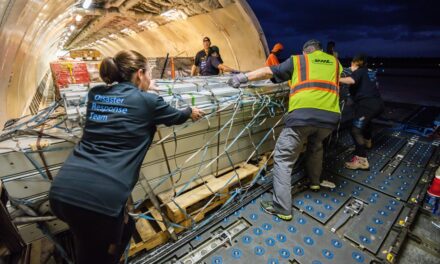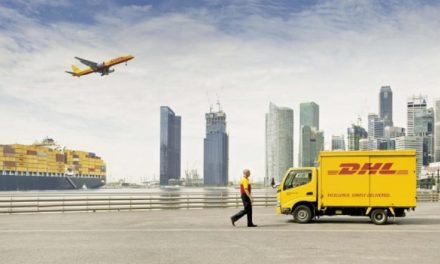
Deutsche Post sees last mile, climate change key in 2050 logistics
By 2050, consumers could be producing their own customised products on 3D printers, with the global logistics industry providing raw materials physically, and blueprints for those products digitally. That is one of the five possible scenarios the world might find itself in within 40 years, according to a study by Deutsche Post DHL entitled “Delivering Tomorrow: Logistics 2050”.
The German logistics giant asked 42 “experts” their views on where the world and its logistics system might find itself halfway through the century. The views generally put the logistics industry central to society’s organisation, with most emphasising the importance of good last mile infrastructure.
Within the predictions, there is an overall assumption that letters and documents will be sent digitally by 2050, but that logistics companies would become increasingly important for transportation of physical products.
The views also generally assumed climate change would continue to worsen, causing extreme weather impacts disrupting supply chains, with the logistics industry called upon to provide relief, and delivery systems requiring strong contingency measures.
Among the predictions, the study suggested one idea in which a utopian dream might see centralised and highly efficient operations, in which the logistics industry would be relied on for long-distance transport between megacities.
Many of the scenarios predicted a more regionalised or localised situation where production is closer to consumption, and the logistics industry would need strength in their regional operations and in the last mile.
Among the experts contributing to the study were representatives from the International Energy Agency, World Economic Forum, world Business Council for Sustainable Development, Greenpeace, and the Volvo Technology Corporation.
The study also heard from academics from various universities in Germany, the US and Hong Kong.
Deutsche Post DHL chief executive Frank Appel said the world had seen the pace of change accelerating rapidly in recent years, and that it was increasingly difficult to make linear forecasts about how development will continue.
“In a world that is becoming harder and harder to predict, we have to expand our horizon and think about alternatives,” he said. “We can devise robust strategies and set the right course only if we have gained an understanding of different perspectives.”
Scenarios
The five different scenarios suggested by the Deutsche Post DHL study included:
1. Untamed economy, impending collapse – The current global consumption continues unrestrained with mass consumption meaning a big demand for logistics. However, the consumption pushes climate change to prompt extreme weather to cause supply chain disruptions, while resource shortages mean profit margins are smaller. Businesses outsource production to logistics companies, while disaster planning and contingency become crucial.
2. Megaefficiency and megacities – The world lives in huge megacities, in a utopian society where production is run by robots and logistics companies run city logistics, utilities and infrastructure services. Rural logistics infrastructure shrinks, with centralised e-commerce collection points only for rural communities. Consumers tend to rent products rather than own – with logistics companies finding a role in renting items and in secure data transfer.
3. Customised lifestyles – Consumers produce their own customised products with 3D printers, with only raw materials and data flowing globally. Production is decentralised and localised, with no demand for long-distance transportation of finished goods. Regionalisation means local supply chains and a high-quality last mile are key success factors. Logistics firms organise the physical supply chain and encrypted data streams for design blueprints going to consumer 3D printers.
4. Paralysing protectionism – A bleak picture of nationalism reversing globalisation and breaking down barriers between countries. Resources are scarce, economies faltering, protectionist barriers are thrown up to halt global trade, climate change runs amok with no global collaboration to counter emissions. The logistics industry becomes more regional and localised, more reliant on road and rail rather than ocean and air, with increasing demand for standard delivery rather than premium logistics.
5. Global resilience – local adaptation – Automated production encourages high consumption of products, but accelerated climate change disrupts the supply chain. In this scenario, rather than worry about logistical efficiency, the world prioritises the resilience of its supply chains against extreme weather events. Creating robust systems is the key, with huge warehouses creating buffers to disruptions in supply, while products are increasingly designed to be long-lasting. Logistics companies find profitable business in relief operations.
The Deutsche Post DHL study was the third in a series of research pieces it has published regarding “Delivery Tomorrow”.
“We consider it part of our responsibility to intensively explore social and business issues that will shape our future,” said Appel.













